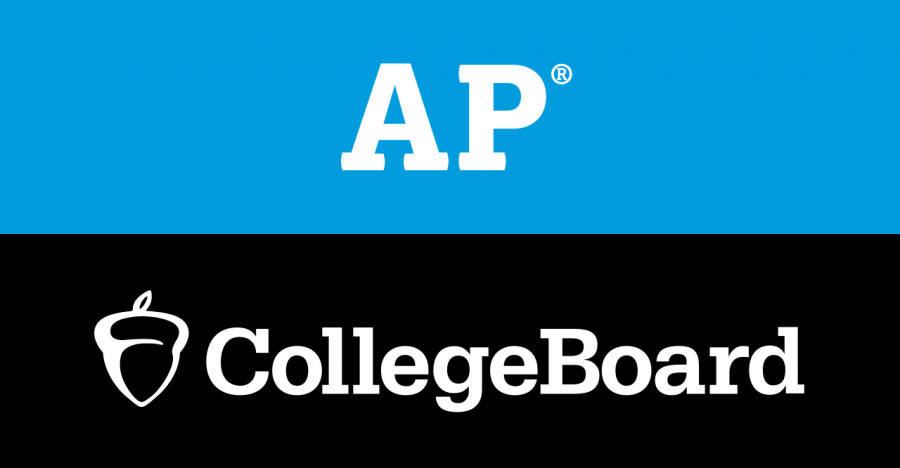AP tests use online platform
When the district announced that the remainder of the year would be online, many upperclassmen were left in the dark about their Advanced Placement (AP) tests. On April 3, the College Board (the organization responsible for the AP tests) announced a rough plan to take the tests online. After several more updates and announcements, students can now look forward to taking one or two free response questions in each test. The tests will be 45 minutes with an extra five minutes at the end to be used to upload any written work, or submit any typed work.
“I appreciate the College Board trying to make the best of a bad situation and trying to meet the needs of the students. They surveyed AP students and found that around 87 percent of the students wanted to take the AP exams this year, so they’ve been working to make that happen,” English teacher Cathlina Bergman said. “The changes to the tests could add more stress for students, just because we’ve been practicing and reviewing for one format of the exam, and now it is different. But there are advantages to this system, too: there is only one essay question (for AP English), no multiple choice questions, students can type instead of write by hand, etc.”
While the English test will have one prose passage essay, the U.S. History test will have two shorter free response questions. Tests will still keep their uniqueness from one another while still fitting in the required time frame. Senior Jaden Anton is taking three AP tests: Calculus, US History and Biology. Anton was one of the 87 percent of students who still wanted to take their AP tests.
“Initially, I was relieved that the tests were still happening. When everything started getting cancelled, I felt like a lot of my hard work was for nothing, and I didn’t want that to be the case with my AP classes,” Anton said.
Bergman said out of the 16-18 students that were originally taking the AP English test, only two or three have dropped out. Given the circumstances, the College Board allowed students to drop a test with no extra charge. However, out of the three tests that Anton will take, she has not dropped any of them. She believes that while the format will change, it will depend on the specific test to determine whether it will be harder or easier.
“I think the hardest test for me will be U.S. history. It takes a lot of memorization of several periods of history and being able to make different connections. For calculus and biology you just have to understand the process which seems to click much easier for me,” Anton said.
After all the tests are taken and the students have finally ended their school year, the AP process is not quite finished. During the summer, AP teachers nationwide meet in a city and grade all of the AP tests. However, this year, these ‘readers’ do not plan to meet, and instead take their grading online as well.
“The College Board and the ETS (Educational Testing Service) have told us that we will be reading from home this year and scoring the exams online. Last summer at the reading in Salt Lake City, I visited with a history teacher who was piloting an online grading system. He said it wasn’t as much fun or as good of professional development as sitting at a table with fellow teachers, grading the exams,” Bergman said. “But he said he did have a ‘table’ full of colleagues who were connected to him (such as through Zoom or Google Meets), so he could get a second opinion on an essay when he needed it. That’s a change this year, too: the College Board says that every essay will get more readings than usual, so students can be confident that their score is accurate.”
After what probably feels like the millions of emails AP students have received from the College Board, it is easy to become lost in information. The College Board combated this by creating videos and webpages about each new aspect of the exams.
“There’s a great webinar from the College Board that walks students through exactly what to expect on exam day and any steps they need to take in advance to get ready, so be sure to attend the session with Shari Sloan or your teacher to get that information. Students can also do a demo starting May 4 that will walk them through a pseudo-exam to make sure their technology works for exam day. Mainly, it’s important to get familiar with the new exam format so that, on exam day, students can show off all that they’ve learned this year,” Bergman said.

